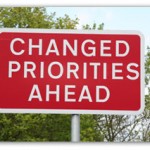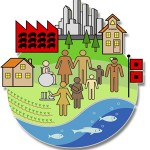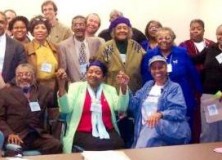“The political system comprises the various branches of government along with the political parties, laws, lobbyists, and private interest groups that affect public policy. By public policy (we) mean the decisions made by government. Policy decisions are seldom neutral. They usually benefit some interests more than others, entailing social costs that are rarely distributed equally. The shaping of a budget, the passage of a law, and the development of an administrative program are all policy decisions, all political decisions, and there is no way to execute them with neutral effect.” (From Democracy for the Few, by Michael Parenti)
If all public policy decisions are both political and seldom neutral, the central question becomes how can citizens help influence, create and affect public policy that benefits majority interests over minority interests (or in some cases: community interests over corporate interests).
Participatory approaches are of growing interest to policy-makers seeking ways to help communities redress problems, whether at the local or national scale.  The CBPR principle of involving citizens directly in the scientific research process encourage more reasoned approaches to decision-making on contentious issues concerning, for example, environmental health. The SCRC seeks to create a system through which grassroots, worker, and public-interest organizations and local governments can — by establishing the agenda and controlling the results of research — find solutions to social and environmental problems and participate more effectively in public policy. Assembling researchers, community organizations, funders, and government officials into a sustainable network is all part of this work.
The CBPR principle of involving citizens directly in the scientific research process encourage more reasoned approaches to decision-making on contentious issues concerning, for example, environmental health. The SCRC seeks to create a system through which grassroots, worker, and public-interest organizations and local governments can — by establishing the agenda and controlling the results of research — find solutions to social and environmental problems and participate more effectively in public policy. Assembling researchers, community organizations, funders, and government officials into a sustainable network is all part of this work.
The SCRC also provides analysis of federal and state policies and regulations—to identify those which inhibit and those which promote community participation in setting state and national research priorities.  By promulgating community-based research methods, the SCRC brings researchers and community members together to solve concrete problems. This validates the knowledge of laypeople and everyday citizens in critical debates over social, economic, environmental and cultural issues, and makes their issues part of the larger debate.
By promulgating community-based research methods, the SCRC brings researchers and community members together to solve concrete problems. This validates the knowledge of laypeople and everyday citizens in critical debates over social, economic, environmental and cultural issues, and makes their issues part of the larger debate.

